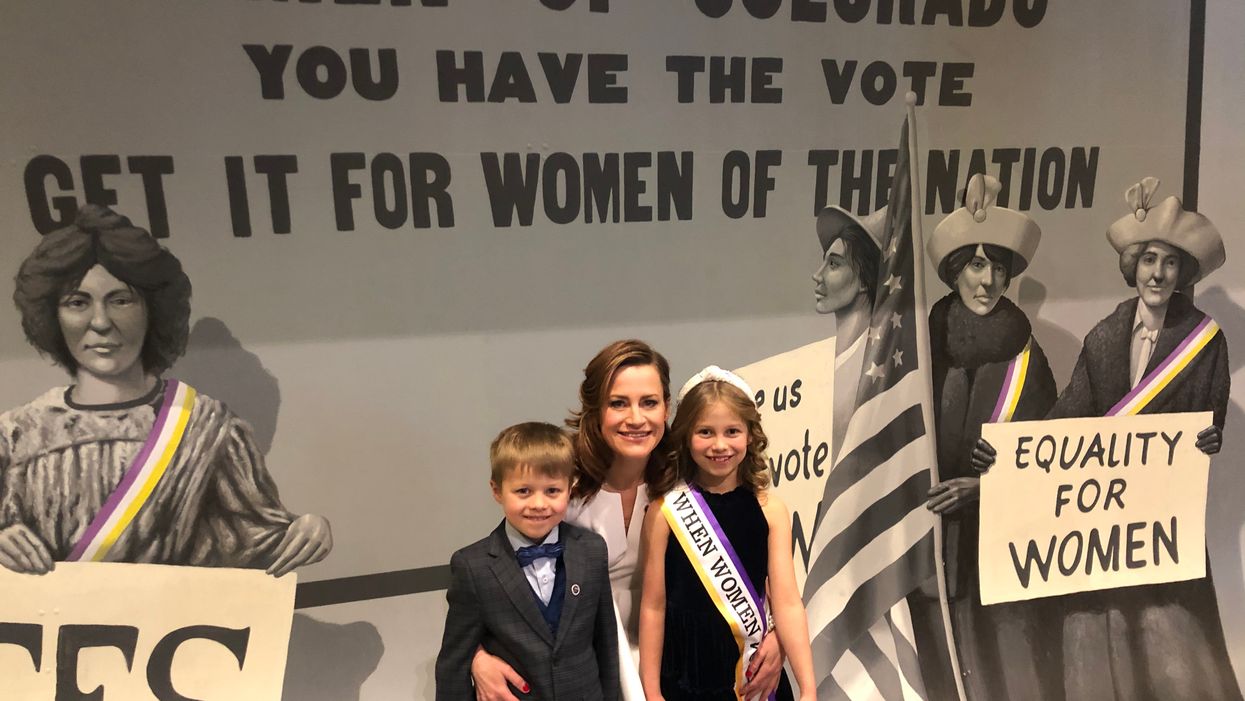After 13 years in Denver's Office of the Clerk and Recorder — more than half the time as elections director, earning a reputation for bringing innovation and simplicity to the conduct of the city's contests — Amber McReynolds switched sides 18 months ago. She is now among the most prominent champions of conducting elections by mail as CEO of the nonpartisan National Vote at Home Institute. She is also co-author, with Stephanie Donner, of the recently published "When Women Vote" (Alden-Swain Press), which promotes ways to combat barriers to the ballot box based not only on gender but also race, disability and more. She has a master's from the London School of Economics and graduated from the University of Illinois, Champaign-Urbana. Her answers have been edited for length and clarity.
What's democracy's biggest challenge, in 10 words or less?
Honoring its promise to equally include all voices.
Describe your very first civic engagement.
Starting when I was about 5, my grandmothers Eleanor and Ada Lucille and my great-aunt Elsa were very engaged in our community as election judges. One grandmother always staged a neighborhood July 4 parade in Kewanee, the small Illinois town where I grew up 150 miles west of Chicago. She would dress as Uncle Sam and have all of the kids dress up as well to hand out flyers about voting. I started going with my parents to vote and stood in the booth while they completed their ballots. In high school I got involved in student government and activities that all involved civics and service. I learned to serve in an authentic way and that politics in high school was interesting, sometimes funny, sometimes disappointing, sometimes sad, sometimes mean — not unlike the politics we see today.
What was your biggest professional triumph?
Designing, building, passing and implementing the most comprehensive, innovative and effective voting modernization reform in Colorado's history in 2013, which made voting by mail available to everyone in the state. I was able to work with the most extraordinary Coloradans to make it happen, catapulting the state to being a leader in election administration, turnout, access, engagement, voter registration, security, efficiency and transparency. It's also one reason why the National Vote at Home Institute exists today and we've been able to assemble a rockstar team.
And your most disappointing setback?
It's hard when you know something would ultimately work better but there is simply resistance to change. For example, I failed to persuade the legislative leadership of one state (I won't say which) they could improve the voting experience, smooth out election administration and save $60 million to $80 million by moving to a model more like Colorado. It devastates me to think what that money could do for our children or education or many other societal needs. So, my most disappointing setbacks come from watching the inability of many politicians to do what's right while constantly fighting about who's right.
How does your identity influence the way you go about your work?
I'm a single mom and in charge of a national nonprofit. Like so many other women, in my career I've faced pay inequity, been discounted because of my identity, been asked if my boss was on the way to a meeting (when I was the boss), etc. So those experiences and that perspective has shaped how I approach my work. I'm also a Coloradan. And, similar to the suffrage movement a century ago, Western states have been far more aggressive in adopting changes that benefit all voters and improve the voting experience for all.
Every voter should have equal and equitable access to the ballot. That's not the case now. Your eligibility depends on where you live and what your circumstances are. This idea that everyone should vote on a single day at a government-assigned location is outdated and introduces more risk into the process, given what it takes to process so many votes in such a short time. So, providing more convenient and secure options for voting over a longer period is the way forward, and the best available option is voting at home with the option of casting a ballot in person at a voting center.
What's the best advice you've ever been given?
Have courage and be kind.
Create a new flavor for Ben & Jerry's.
Coffee with chocolate, sea salt and caramel.
What's your favorite political movie or TV show?
"Madam Secretary," the CBS show with Téa Leoni as a former CIA analyst and political science professor turned secretary of state.
What's the last thing you do on your phone at night?
Check my calendar for the next day. To be sure I have everything ready that needs to be ready for work, ensure I have coverage for the kids if I need help for work, then decide when I can fit in my workout.
What is your deepest, darkest secret?
I am fascinated by wigs, particularly pink and blue, so perhaps I have a secret desire to be a rock star. And I always wanted to be a pilot and go into the CIA. My thought was that if I knew how to fly, I could get myself out of any tough situation. I wanted to be the female version of James Bond.




















